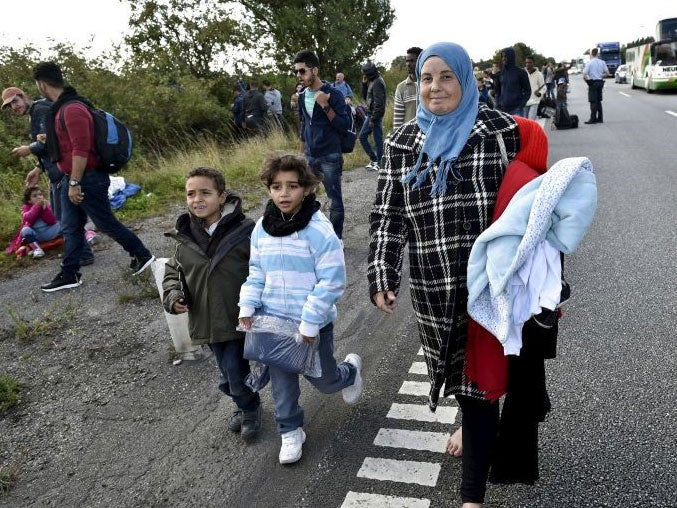Refugee crisis: Denmark discourages asylum seekers with newspaper adverts in Lebanon
The adverts listed tighter regulations that reduce benefits for refugees, delay families being able to join them and bring in Danish language requirements

Your support helps us to tell the story
From reproductive rights to climate change to Big Tech, The Independent is on the ground when the story is developing. Whether it's investigating the financials of Elon Musk's pro-Trump PAC or producing our latest documentary, 'The A Word', which shines a light on the American women fighting for reproductive rights, we know how important it is to parse out the facts from the messaging.
At such a critical moment in US history, we need reporters on the ground. Your donation allows us to keep sending journalists to speak to both sides of the story.
The Independent is trusted by Americans across the entire political spectrum. And unlike many other quality news outlets, we choose not to lock Americans out of our reporting and analysis with paywalls. We believe quality journalism should be available to everyone, paid for by those who can afford it.
Your support makes all the difference.The Danish government has placed an advertisement in a number of newspapers in Lebanon. The ads carry an unspoken yet unmistakable message: Don't come to Denmark.
They list a number of factors that would make Denmark an undesirable destination for refugees, including recent legislation that would reduce social benefits to arriving asylum seekers by 50 percent.
Pointedly, it notes that anyone hoping to gain permanent residence in Denmark would have to learn Danish.
Arabic and English versions of the advertisement, placed by Denmark's Ministry of Immigration, Integration and Housing, ran in four newspapers on Monday.
Denmark has taken a stricter stance on immigration since the center-right Liberal Party formed a minority government in June.
While Germany and Sweden have embraced larger numbers of refugees over the past year, Denmark has cut back, imposing laws designed to discourage migrants from traveling to the country, including a severe cut to the benefits offered to refugees.
In July, Integration Minister Inger Stojberg had promised to run advertisements in foreign newspapers about the changes in Danish benefits to refugees.
“The advertisements must contain sobering information about the halving of benefits and other constraints we are going to adopt,” Stojberg told the Danish broadcaster DR. “This kind of information spreads.”
Denmark, like Britain, has an exemption from European Union-wide asylum regulations that aim to redistribute refugees. However, the Danish People's Party (DPP) has called for further measures, including potentially leaving Europe's border-control-free Schengen zone.
The DPP is a powerful player in Danish politics at the moment: While not a part of government, it became the second-largest party in Denmark after the election and provides key support to the Liberal Party.
The party has a clear anti-immigration agenda. Last month, one DPP politician argued that the government should step in to regulate the Danish language, warning that the “pizza Danish” spoken by immigrants in fast-food restaurants was spreading.
On Monday, some in Denmark criticized the advertisements, including some members of the Liberal Party. “I am very, very disappointed,” Michael Gatten, a member of Copenhagen's municipal council, told Jyllands-Posten. “It is a repulsive way of acting.”

“This must be the worst timing for an ad in the history of the world,” Uffe Elbaek, the leader of the left-leaning Alternative Party, wrote on Twitter.
In a post published on Facebook, Stojberg explained the motivation behind the advertisements. “We simply cannot keep up with the current influx,” the minister wrote, adding that it was important not only to tighten laws but also to let potential migrants know.
The post has been liked more than 6,000 times as of late Monday morning.
Denmark received almost 15,000 asylum-seekers last year, a significant increase over previous years. There are more than 1 million Syrian refugees in Lebanon, meaning that at least one out of every four people living in the country fled the war in Syria.
Copyright: Washington Post
Join our commenting forum
Join thought-provoking conversations, follow other Independent readers and see their replies
Comments